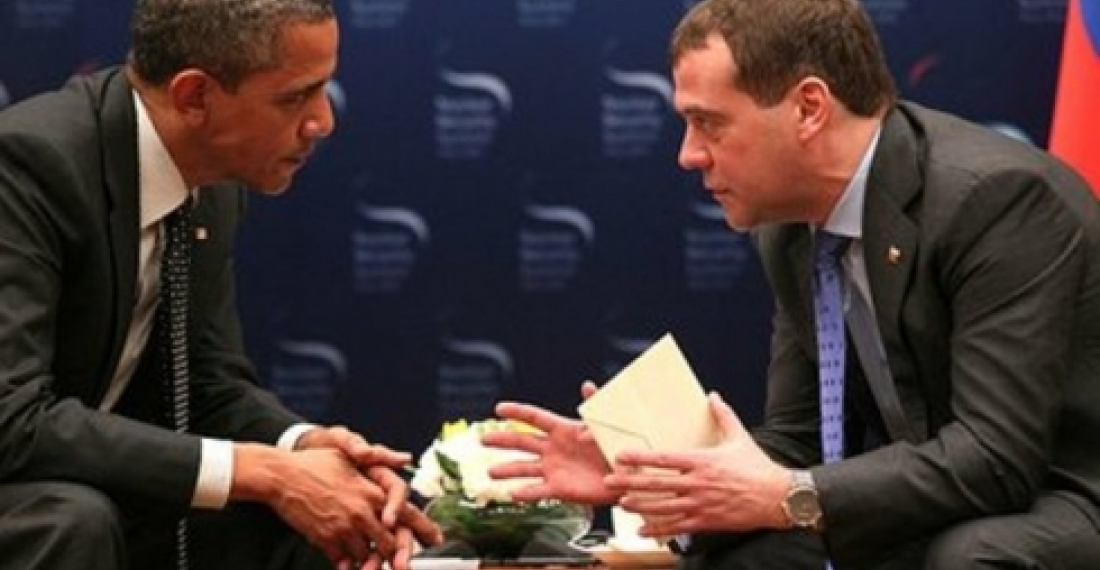US President Barak Obama and his Russian counterpart Dimitri Medvedev met this morning in the South Korean capital Seoul where both are participating in the Global Nuclear Summit. The two leaders discussed a number of issues that are currently casting a shadow on the relations between their two countries, including the American Missile Shield in Europe and Syria.
Referring to the missile shield discussions, Medvedev said "Our respective positions remain the same but dialogue on this subject is not only possible, it is also necessary.
This will probably be the last meeting between the two leaders before Dimitri Medvedev hands over the presidency of Russia back to Vladimir Putin. Both he and Obama have rtried hard over the last few years to reset the relations between their two countries following a period of cool relations during the last years of the Bush Whitehouse.
source: commonspace.eu
photo: President Obama and President Medvedev during a tete-a-tete on the margins of the Nuclear Summit in Seoul on 16 March 2012 (picture courtesy of the Press Service of the president of Russia)







